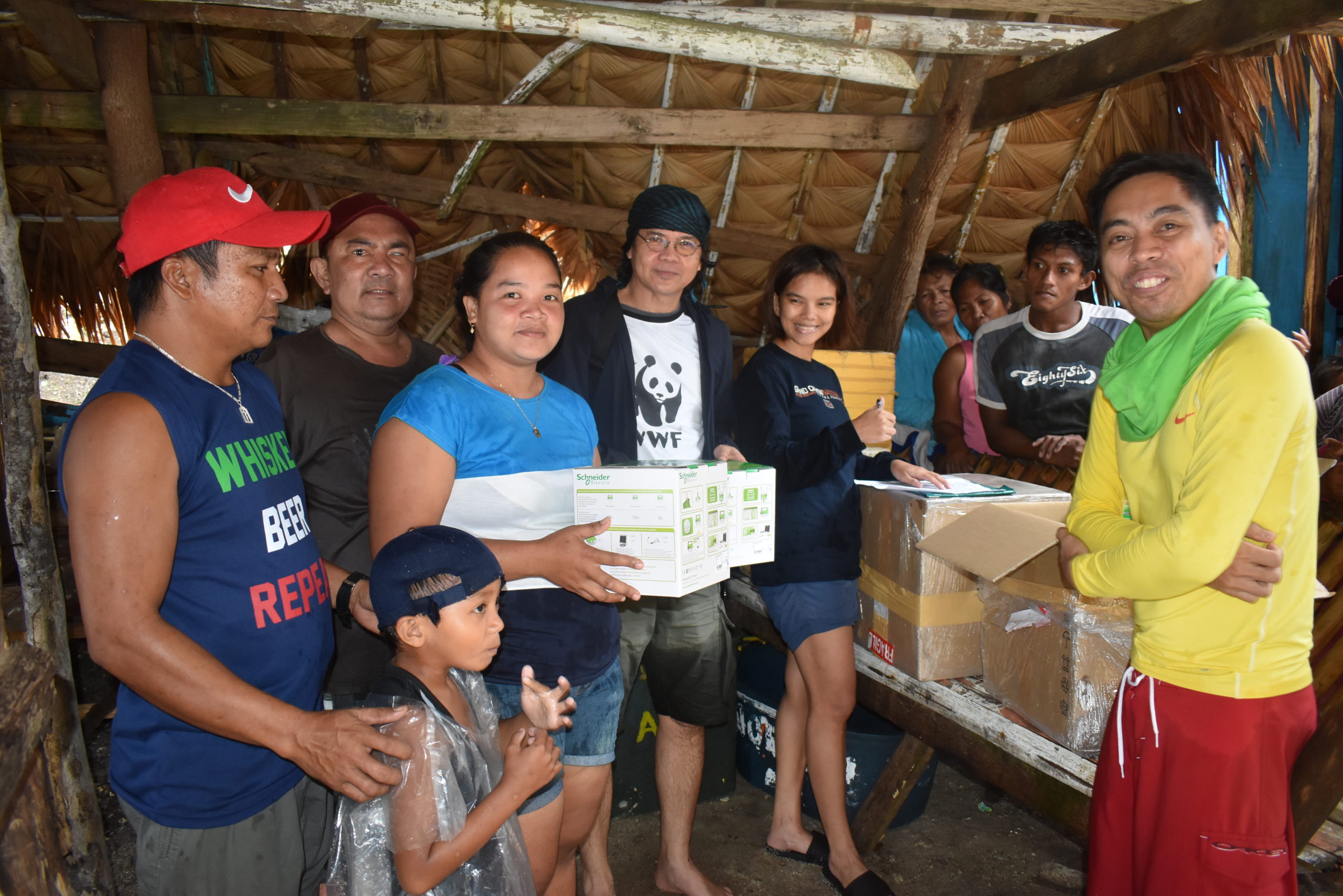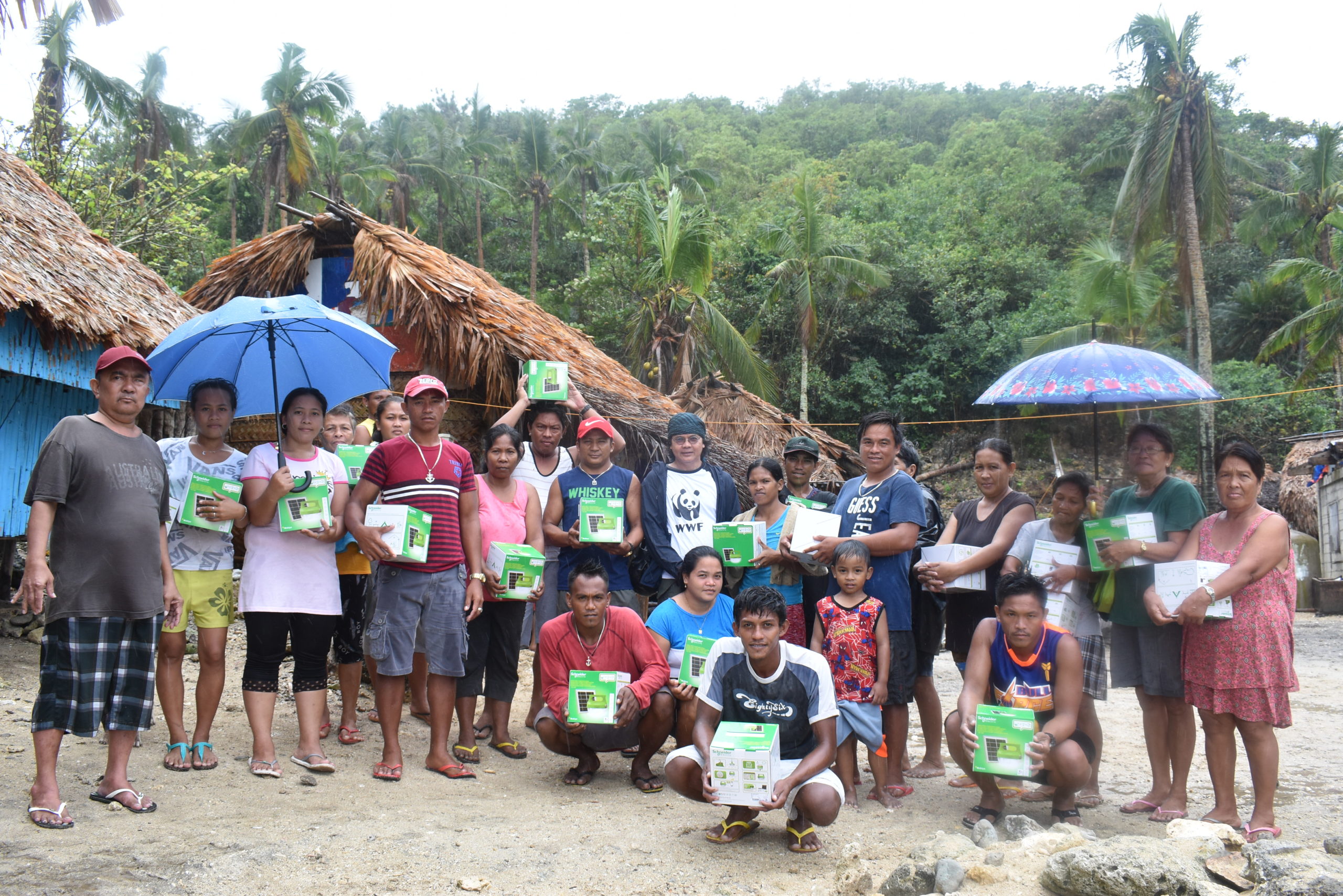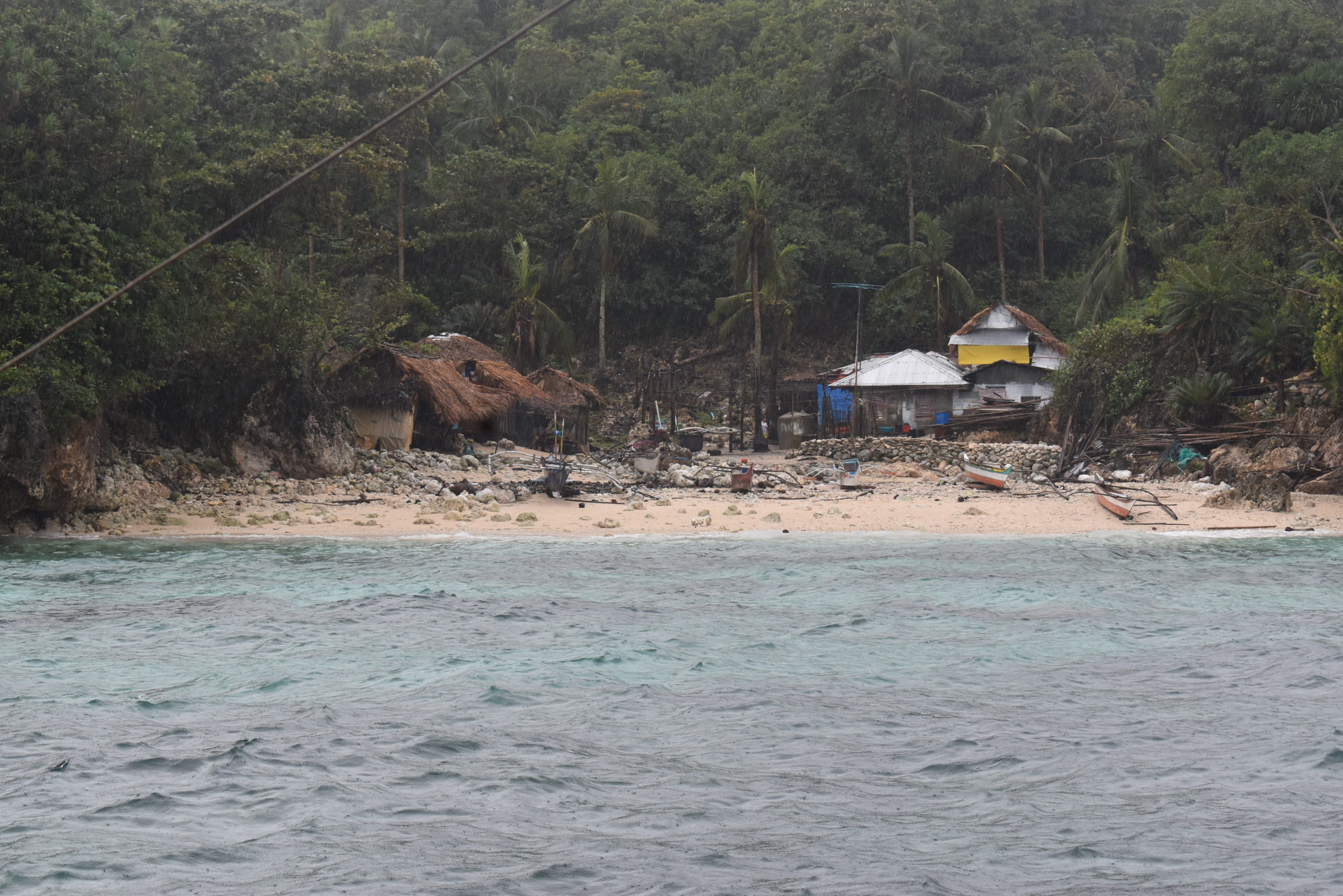WWF Philippines provides solar lamps to Masbate’s ‘Earth Hour Village’

Forty households in Guinhadap, a village in Monreal town in Masbate, received solar lamps from the World Wide Fund for Nature (WWF) Philippines Friday. Guinhadap’s Sitio Tapahan is also an Earth Hour Village of WWF Philippines. Photo from WWF Philippines
LEGAZPI CITY—Some 40 households in Guinhadap, a village in Monreal town in Masbate province, received solar lamps from the World Wide Fund for Nature (WWF) Philippines Friday, said Manuel Narvadez Jr., Donsol project manager.
Narvadez said that Guinhadap’s Sitio Tapahan, a small fishing island north of Ticao, has never had electricity, with residents relying on kerosene lamps for lighting.
“The Tapahan community is also an Earth Hour Village of WWF Philippines,” Narvadez told Inquirer. “We installed rainwater collector there in 2017 because there is no water facility in the area.”

Forty households in Guinhadap, a village in Monreal town in Masbate, received solar lamps from the World Wide Fund for Nature (WWF) Philippines Friday. Guinhadap’s Sitio Tapahan is also an Earth Hour Village of WWF Philippines. Photo from WWF Philippines
WWF’s Earth Hour Village project reaches far-flung areas that need development in community resilience to the climate crisis.
“The project introduces three adaptive technologies: container farming, rainwater harvesting, and solar lighting that benefit communities to sustainably access food, water and energy,” according to the WWF Philippines website.

Forty households in Guinhadap, a village in Monreal town in Masbate, received solar lamps from the World Wide Fund for Nature (WWF) Philippines Friday. Guinhadap’s Sitio Tapahan is also an Earth Hour Village of WWF Philippines. Photo from WWF Philippines
Before they were provided with rainwater collectors, residents in Tapahan had to walk as far 5 kilometers just to fetch water from wells.
Aside from the rainwater harvesters and the portable solar lamps, WWF has been providing residents techniques for sustainable gardening.
According to a 2018 report from the National Electrification Administration (NEA), more than 2 million households have yet to be powered throughout the country.# Rey Anthony Ostria, @RAOstriaINQ, Inquirer Southern Luzon